Read the latest research from our department.
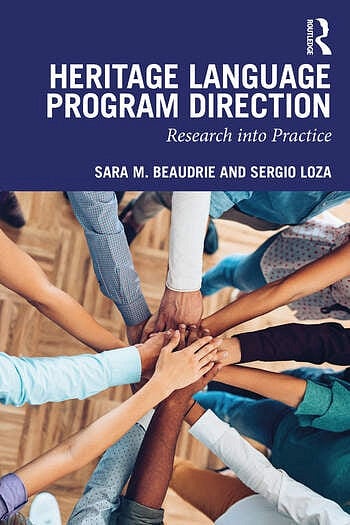
Heritage Language Program Direction: Research into Practice (Routledge, 2023)
Sergio Loza, assistant professor of Spanish
This book is an introduction to different facets of building and leading language education programs at the university level to meet the needs of students who are minority speakers of a heritage language (HL) – also known as community or home languages. Loza and co-author Sara Beaudrie (Arizona State University) authoritatively illustrate and guide the reader through the main issues that program directors face from the early stage of program conceptualization and creation through later stages of program management and evaluation. The book keys in on the diverse considerations and skills involved in this leadership work – including advocacy and fund-raising, placement, curriculum development and assessment, teacher preparation and student advocacy – and offers an array of practical advice and pedagogical features.
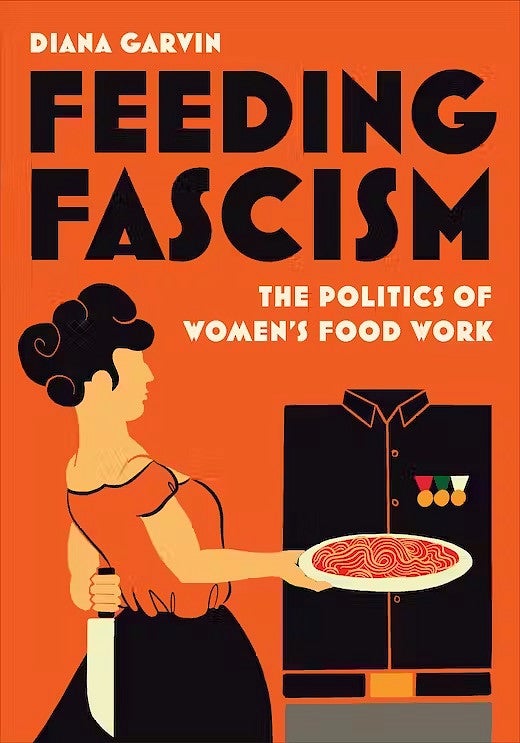
Diana Garvin, assistant professor of Italian
Feeding Fascism explores how women negotiated the politics of Italy’s fascist regime in their daily lives and how they fed their families through agricultural and industrial labor. The book looks at women’s experiences of fascism by examining the material world in which they lived in relation to their thoughts, feelings, and actions. Garvin has conducted extensive research in Italian museums, libraries, and archives. Feeding Fascism includes illustrations of rare cookbooks, kitchen utensils, cafeteria plans, and culinary propaganda to connect women’s political beliefs with the places that they lived and worked and the objects that they owned and borrowed. Garvin draws on first-hand accounts, such as diaries, work songs, and drawings, that demonstrate how women and the fascist state vied for control over national diet across many manifestations – cooking, feeding, and eating – to assert and negotiate their authority. Revealing the national stakes of daily choices, and the fine line between resistance and consent, Feeding Fascism attests to the power of food.

Translated by Amalia Gladhart, professor of Spanish
Jaguars' Tomb, a novel by Argentine writer Angélica Gorodischer, and translated by Gladhart, is both an intriguing puzzle and a meditation on how to write about, or through, violence, injustice, and loss. It is written in three parts by three interconnected characters. Part one, "Hidden Variables" by María Celina Igarzábal, is narrated by Bruno Seguer. Seguer in turn is the author of the second part, "Recounting from Zero" ("Contar desde zero"), in which Evelynne Harrington, author of the third, is a central character. Harrington, finally, is the author of "Uncertainty" ("La incertidumbre"), whose protagonist is the dying Igarzábal. Each of the three parts revolves around the octagonal room that is alternately the jaguars' tomb, the central space of the torture center, and the heart of an abandoned house that hides an adulterous affair.Among Gorodischer's many novels, Jaguars' Tomb most directly addresses the abductions and disappearances that occurred under the Argentine military dictatorship of 1976–83.
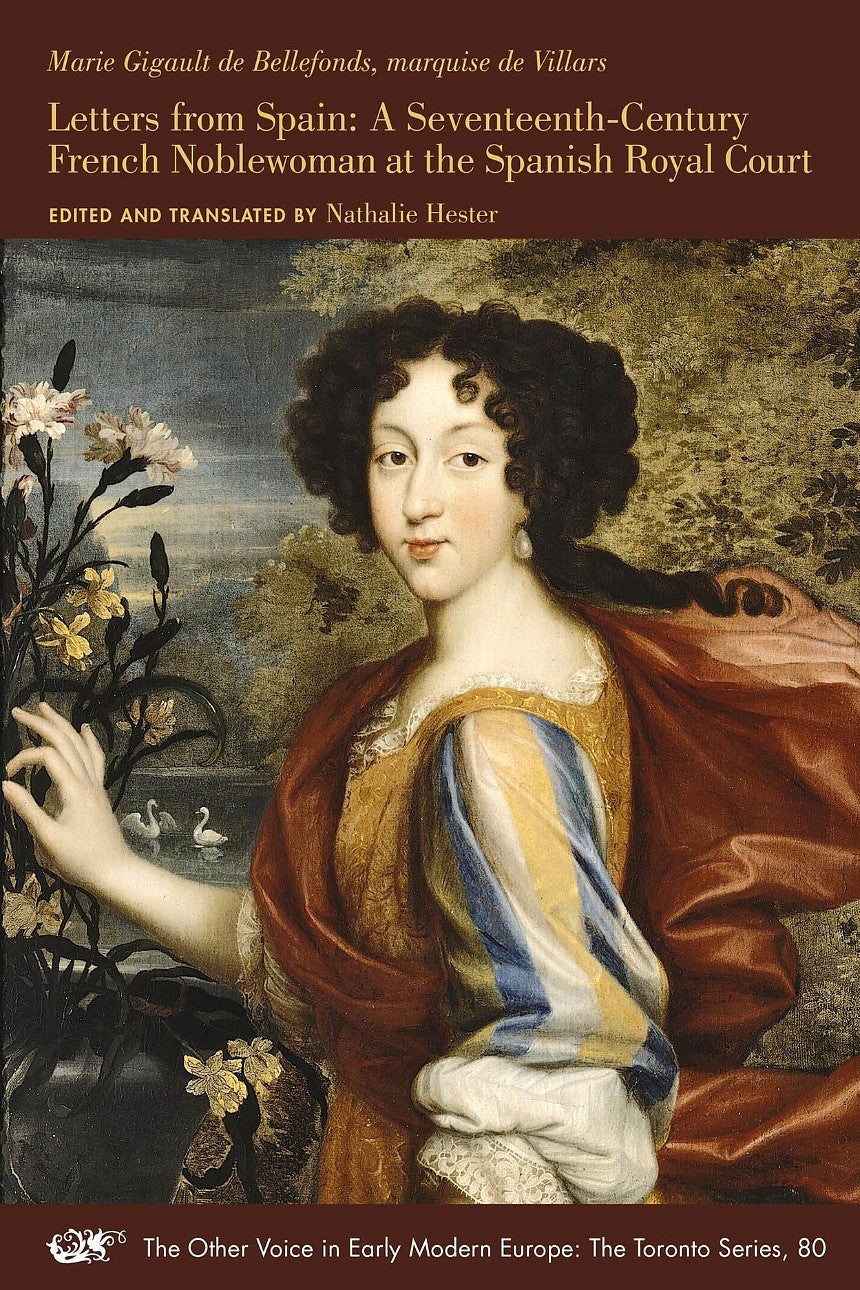
Nathalie Hester, associate professor of French and Italian
Marie Gigault de Bellefonds, Marquise de Villars was a well-regarded figure in Parisian salons and esteemed by King Louis XIV, and she traveled internationally to accompany her ambassador husband, playing significant diplomatic roles at the court of Savoy in Turin and at the court of Spain in Madrid. She became the confidante of the queen of Spain, Marie-Louise d’Orléans, the niece of Louis XIV, and, as instructed by the king of France, endeavored to pursue French political interests in Madrid with female members of royalty. This volume, edited and translated by Hester, includes her surviving letters from Madrid to her friend Madame de Coulanges and an appendix of her letters sent from Paris and Turin. The letters from Spain, written between 1679 and 1681, paint a vivid and engaging picture of the royal court and its new queen.
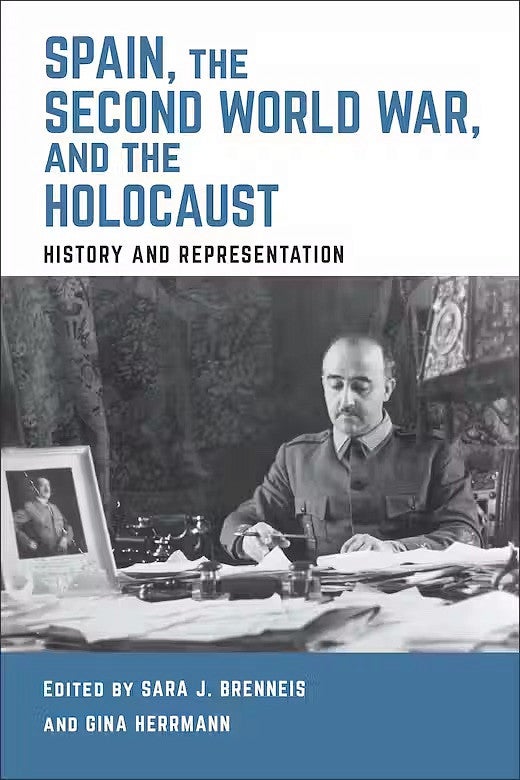
Gina Herrmann, professor of Spanish
This volume, edited by Herrmann together with Sarah J. Brenneis (Amherst College) is the first broadly interdisciplinary, scholarly collection to situate Spain in a position of influence in the history and culture of the Second World War. Featuring essays by international experts in the fields of history, literary studies, cultural studies, political science, sociology, and film studies, this book clarifies historical issues within Spain while also demonstrating the impact of Spain's involvement in the Second World War on historical memory of the Holocaust. Spain, the Second World War, and the Holocaust reaches beyond discipline, genre, nation, and time period to offer previously unknown evidence of Spain’s continued relevance to the Holocaust and the Second World War.
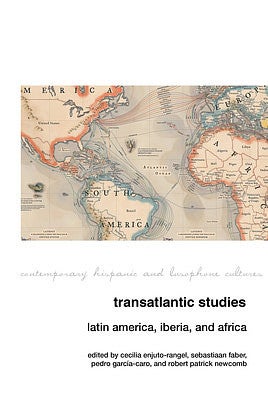
Cecilia Enjuto-Rangel, associate professor of Spanish
Pedro García-Caro, associate professor of Spanish
This volume, edited by Enjuto-Rangel and García-Caro, together with Sebastiaan Faber (Oberlin College), and Robert Patrick Newcomb (UC Davis), seeks to advance the conceptualization and definition of the field of Iberian and Latin American Transatlantic Studies with three goals in mind: to discuss its function within our pedagogical practices, to lay out its research methodologies, and to explain its theoretical underpinnings. One central aim of Transatlantic Studies: Latin America, Iberia, and Africa is to make the case for an understanding of transatlantic cultural history over the last two centuries that transcends national and linguistic boundaries, as well as traditional academic configurations, focusing instead on the continuities and fractures between Latin America, the Iberian Peninsula, and Spanish- and Portuguese-speaking Africa. This volume also contains essays by RL colleagues Gina Herrmann and Lanie Millar.
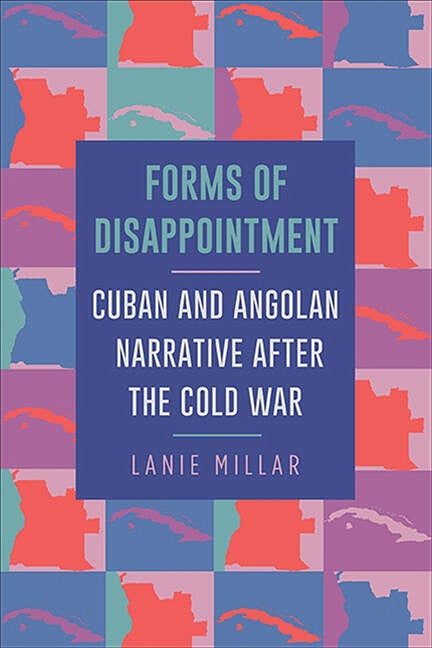
Forms of Disappointment: Cuban and Angolan Narrative after the Cold War (State University of New York Press, 2019)
Lanie Millar, associate professor of Portuguese and Spanish
In this book Millar traces the legacies of anti-imperial solidarity in Cuban and Angolan novels and films after 1989. Cuba's intervention in Angola's post-independence civil war from 1976 to 1991 was its longest and most engaged internationalist project and left a profound mark on the culture of both nations. After the fall of the Berlin Wall, Millar argues, Cuban and Angolan writers and filmmakers responded to this collective history and adapted to new postsocialist realities in analogous ways, developing what she characterizes as works of disappointment. Revamping and riffing on earlier texts and forms of revolutionary enthusiasm, works of disappointment lay bare the aesthetic and political fragmentation of the public sphere while continuing to register the promise of leftist political projects. Pushing past the binaries that tend to dominate histories of the Cold War and its aftermath, Millar gives priority to the perspectives of artists in the Global South, illuminating networks of anticolonial and racial solidarity and showing how their works not only reflect shared feelings of disappointment but also call for ethical gestures of empathy and reconciliation.
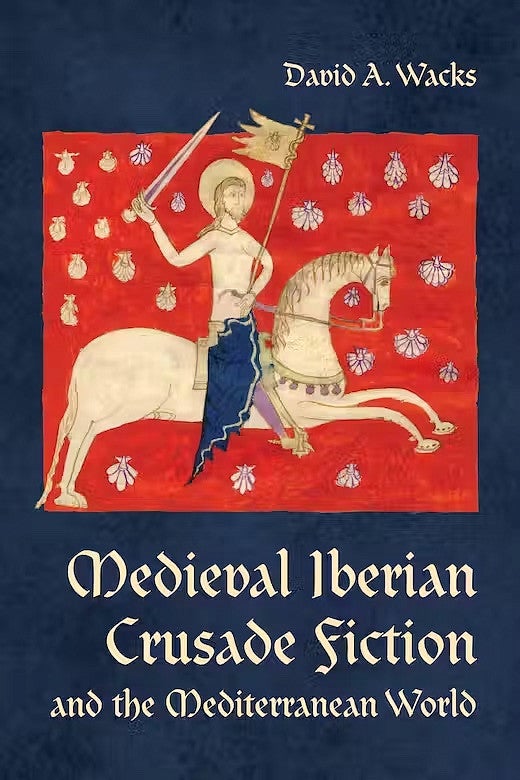
David Wacks, professor of Spanish
Reading crusader fiction against the backdrop of Mediterranean history, in this book Wacks explains how Iberian authors reimagined the idea of crusade through the lens of Iberian geopolitics and social history. The crusades transformed Mediterranean history and inaugurated complex engagements between Western Europe, the Balkans, North Africa, and the Middle East in ways that endure to this day. Narratives of crusades powerfully shaped European thinking about the East and continue to influence the representation of interactions between Christian and Muslim states in the region. The crusade, a French idea that gave rise to Iberian, North African, and Levantine campaigns, was very much a Mediterranean phenomenon. French and English authors wrote itineraries in the Holy Land, chronicles of the crusades, and fanciful accounts of Christian knights who championed the Latin Church in the East. This study aims to explore the ways in which Iberian authors imagined their role in the culture of crusade, both as participants and interpreters of narrative traditions of the crusading world from north of the Pyrenees.

